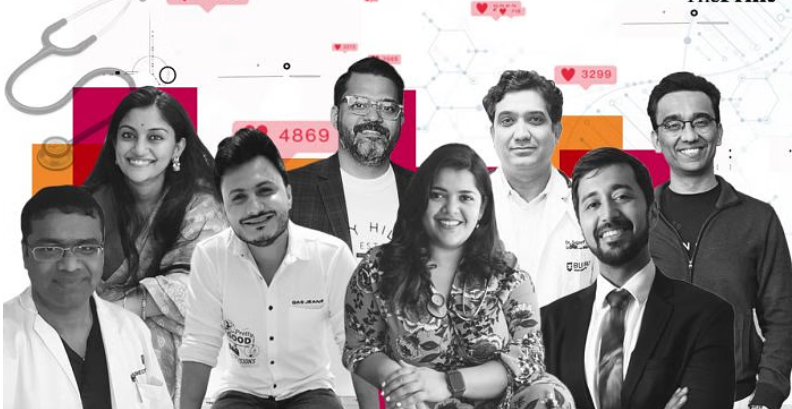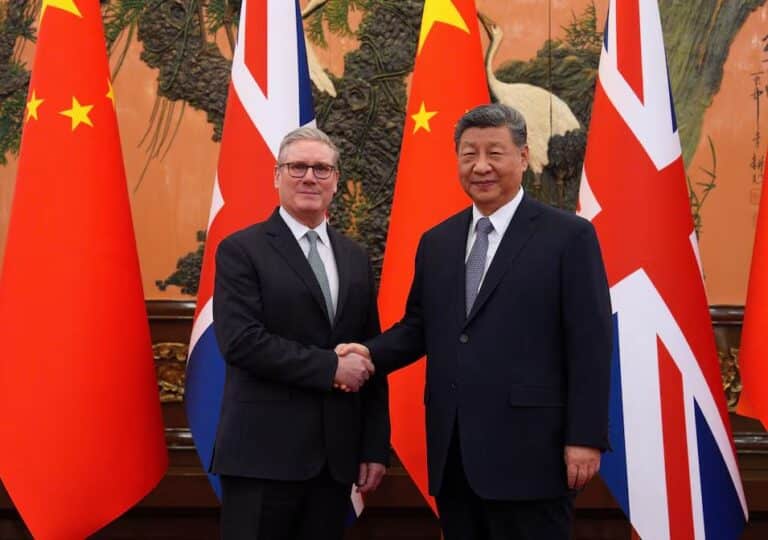
The digital world has seen a surge of doctor-influencers, bringing a blend of humor and expertise to educate the masses about various health issues. Whether it’s addressing the myths surrounding menstrual health, discussing gut health, or providing insights into paediatrics, these health professionals are transforming how people consume medical knowledge. Influencers like Dr. Cuterus, Bacchon Ki Doctor, and Dr. Abby Philips are empowering viewers to take control of their health by delivering complex information in an engaging, relatable way.
One of the driving forces behind this trend is the overwhelming spread of misinformation, particularly on social media. With so many myths and false claims circulating, it can be challenging for the average person to differentiate between accurate health advice and pseudoscience. That’s where health influencers step in. These doctors are using platforms like Instagram, YouTube, and Facebook to break down medical concepts, bust myths, and promote science-backed health education.
Dr. Arpit Bansal, a renowned medical professional from Uttar Pradesh, is an example of a doctor who has embraced social media as a tool for health education. Managing a 200-bed hospital, Dr. Bansal still finds time to create informative videos about various health topics, such as gut health and gallbladder stones. His approach is straightforward, and he effortlessly explains complex medical topics in an easy-to-understand manner. With over 93,000 followers on Instagram and 4,000 YouTube subscribers, Dr. Bansal’s videos garner millions of views, helping him reach a broad audience beyond his hospital.
Dr. Abby Philips, better known as ‘The Liver Doc,’ is another example of a medical professional using his platform to share important health information. A hepatologist and clinical scientist, Dr. Philips noticed a gap in the health education available to his patients, particularly in the area of liver diseases. Frustrated by the lack of preventive measures, he turned to social media to spread awareness and educate the public on liver health. Through his posts and videos, Dr. Philips emphasizes the importance of prevention and dispels harmful myths, especially regarding alternative medicine. His online presence has attracted over 2.8 million followers on X and 69,100 on Instagram.
The rise of doctor influencers also includes specialists like Dr. Tanaya Narendra, popularly known as ‘Dr. Cuterus.’ A sexual health educator and embryologist, Dr. Narendra recognized the need to debunk the many myths surrounding menstrual health. Motivated by the abundance of misinformation about menstruation, she began creating content in 2020 to provide accurate, science-backed information. With over one million Instagram followers and 50 million YouTube views, Dr. Narendra has become one of the most influential figures in the health-influencer space. She combines humor, fairy tales, and relatable metaphors to simplify complex medical topics, making them more accessible to a wider audience.
By embracing social media as a platform for education, these doctors are making health information more engaging and accessible. They are changing the way people think about wellness and offering a safe space for open discussions on topics that were once considered taboo, such as sexual health and mental wellness.
However, creating this type of content is not without its challenges. Many of these influencers juggle their medical careers with content creation, managing hospitals, clinics, or research projects while still finding time to film videos, record reels, and answer health queries. For some, it’s a team effort, with content production, video editing, and strategy handled by a dedicated group of professionals.
The growing influence of these health professionals on social media is not just about sharing advice; it’s about creating a movement that encourages healthier living through education. As more people turn to these influencers for guidance, it is clear that the future of health education lies in the intersection of expertise and entertainment. Through their videos, blogs, and social media posts, these doctors are reshaping the way we view health and well-being.
These influencers are also addressing pressing health concerns in real-time. For example, Dr. Bansal recently addressed the surge in gallbladder stone cases in his area, using insights from his hospital rounds to create a video that answered common patient questions. This level of personal engagement makes the content relatable and practical for everyday viewers.
Dr. Philips, for his part, focuses on liver health, stressing the importance of maintaining a healthy lifestyle to prevent diseases like hepatitis and cirrhosis. His content also includes educational videos that tackle the dangers of alternative medicine and unverified health practices, providing his audience with the tools they need to make informed decisions.
While these influencers have made a name for themselves in the world of health education, their mission remains the same: to empower individuals to make informed decisions about their health. By breaking down complex topics into digestible and engaging content, they are helping to build a society where health literacy is the norm rather than the exception.
In conclusion, the age of health-influencers is here to stay. With a mix of professionalism, humor, and empathy, these doctors are paving the way for a new era of health education. Their ability to combine their medical expertise with the power of social media is changing how we approach health and wellness, making it easier for people to access reliable information and take charge of their well-being.







